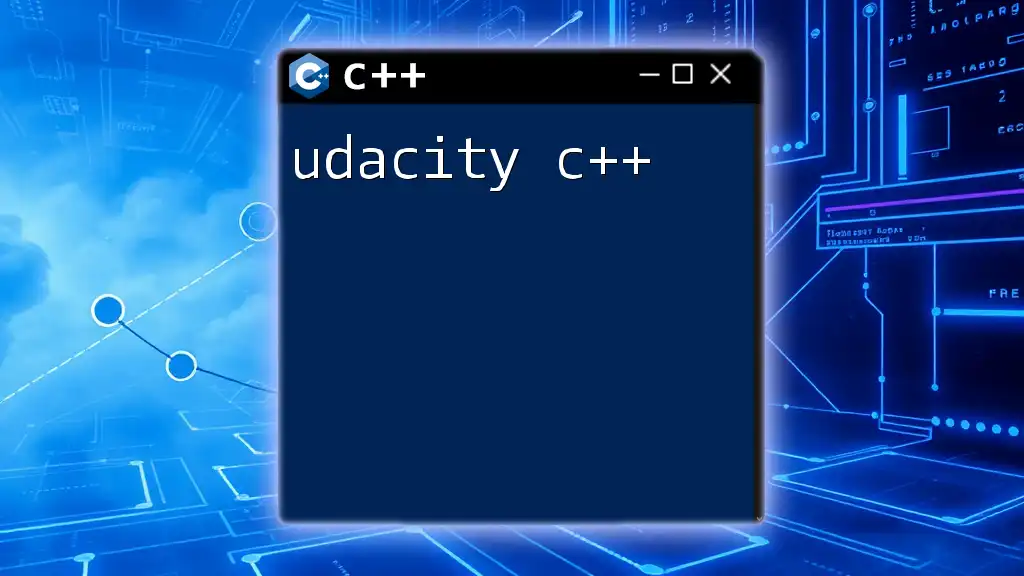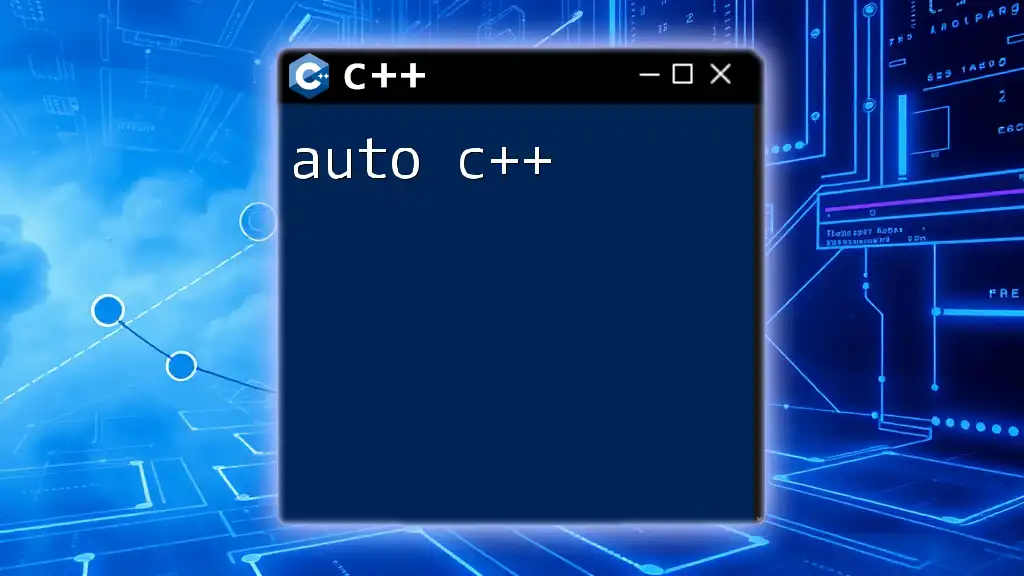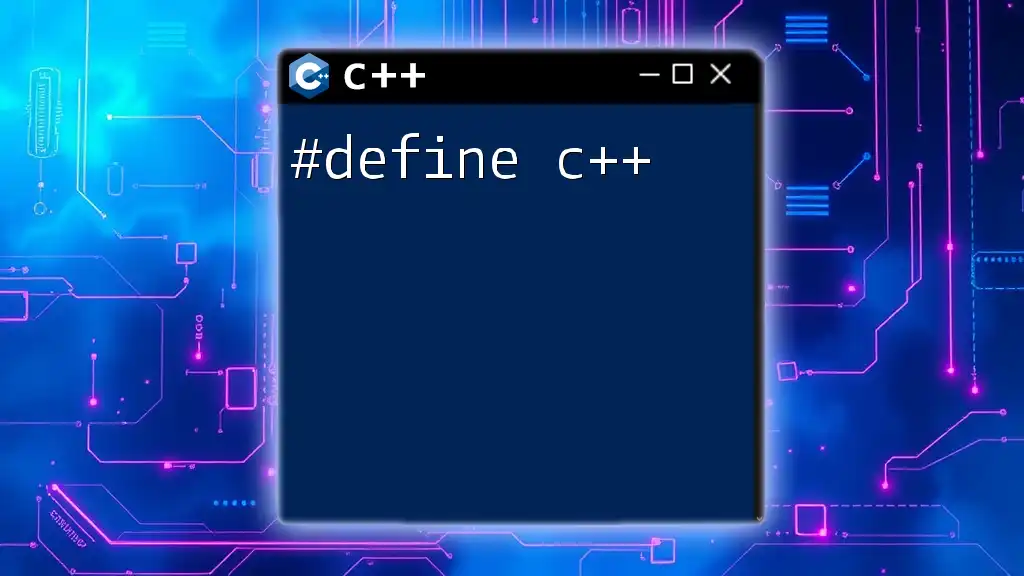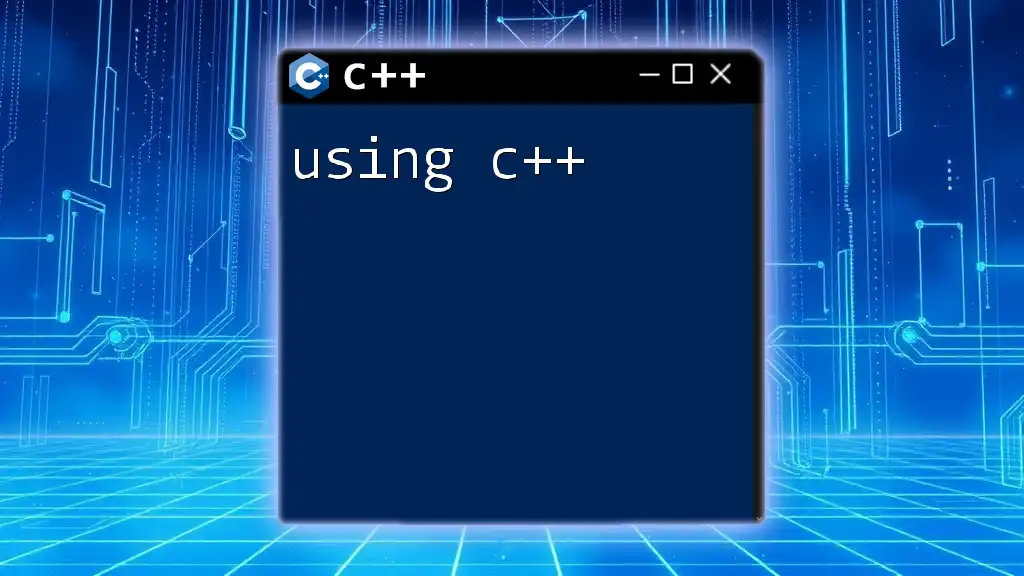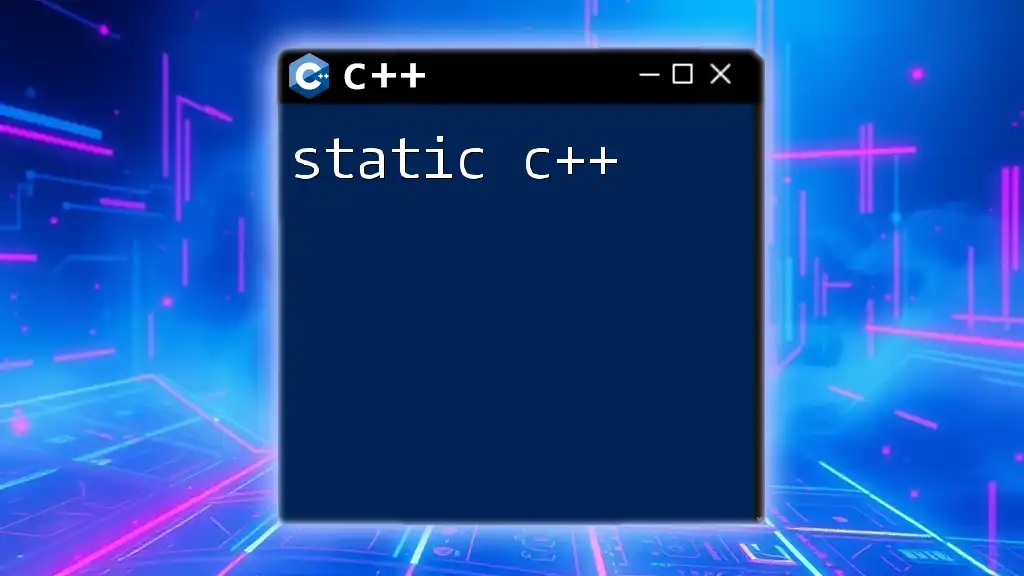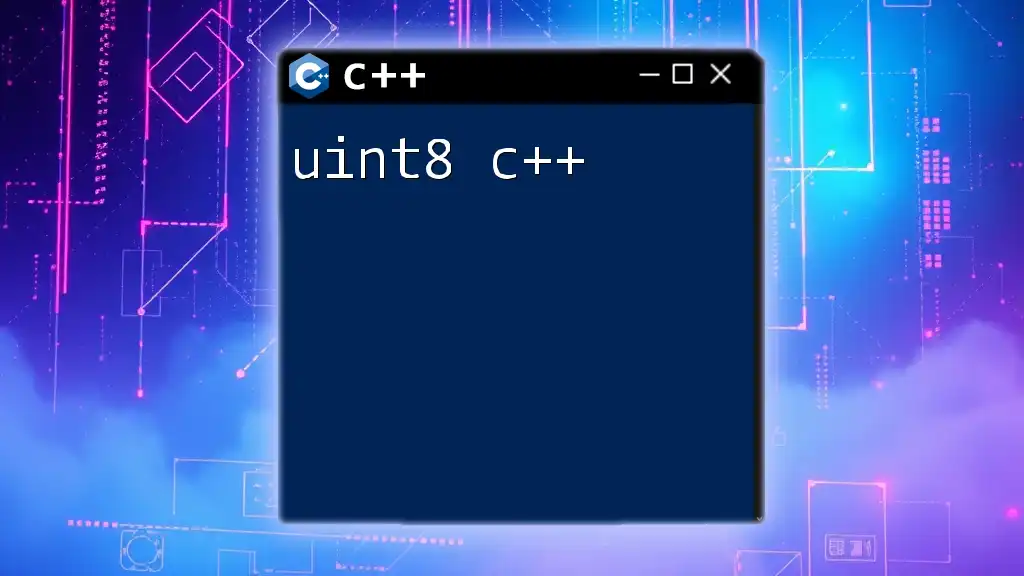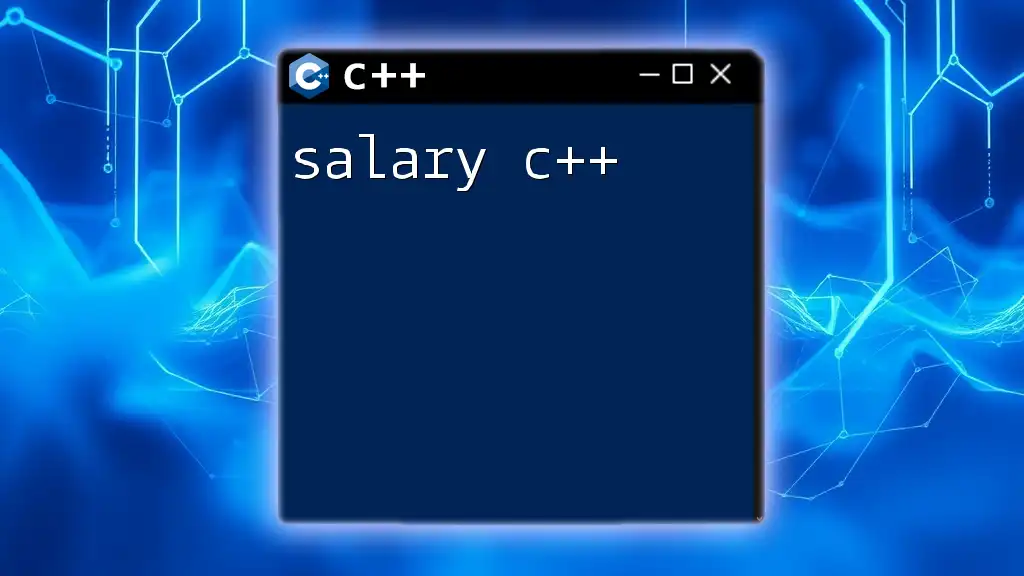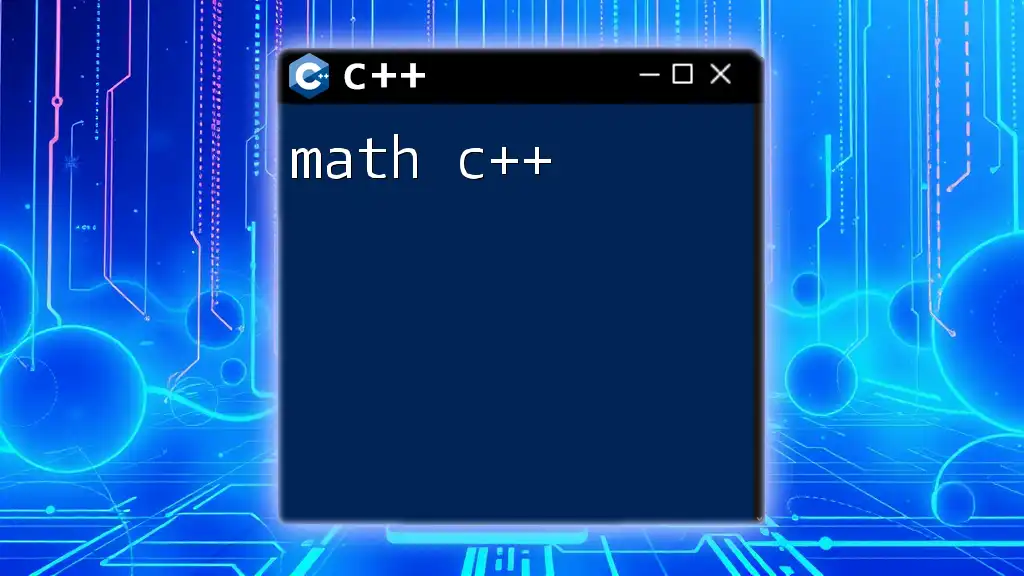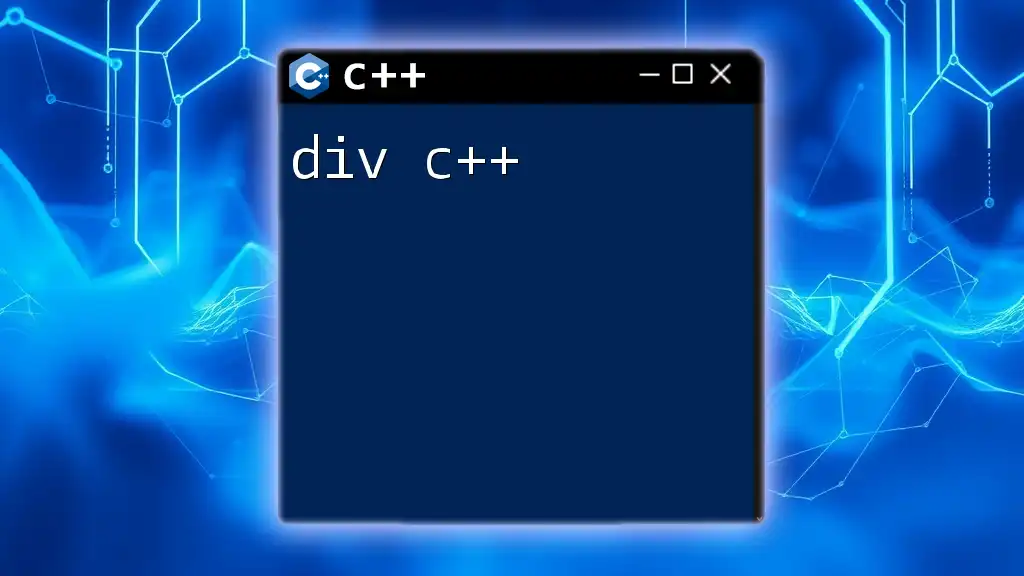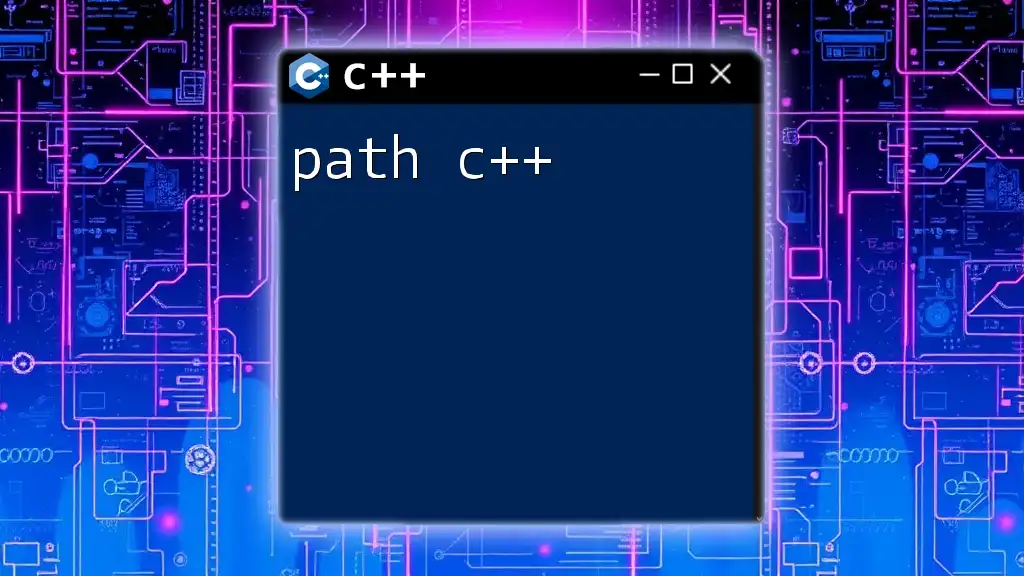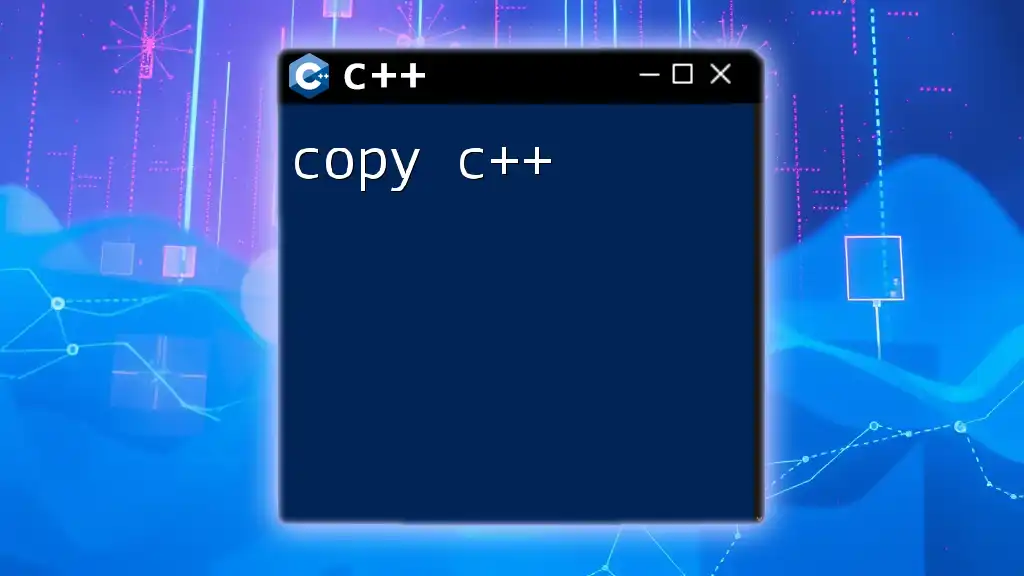Udacity offers C++ courses that focus on foundational programming concepts, equipping students with practical skills through hands-on projects.
Here's a simple code snippet demonstrating a basic C++ program that prints "Hello, World!" to the console:
#include <iostream>
int main() {
std::cout << "Hello, World!" << std::endl;
return 0;
}
Understanding C++ Essentials
What is C++?
C++ is a general-purpose programming language, born out of the need for a language that combines both high-level abstraction and low-level memory control. Developed in the early 1980s by Bjarne Stroustrup, C++ is an extension of the C programming language, incorporating object-oriented features. This makes it particularly well-suited for software development where performance and efficiency are critical.
Key features of C++ include:
- Object-Oriented Programming (OOP): C++ promotes encapsulation, inheritance, and polymorphism, allowing you to create complex systems with relative ease.
- Rich Standard Library: The Standard Template Library (STL) provides a wealth of built-in functions and data structures, streamlining programming tasks.
- Performance: C++ is compiled to machine code, making it one of the fastest languages available for high-performance applications.
When comparing C++ with other languages like Python or Java, C++ is typically faster and provides more control over system resources, which is vital for systems programming and applications like game development.
Setting Up Your C++ Environment
To effectively learn C++ through Udacity C++, it’s essential to establish a robust development environment.
Recommended IDEs and Compilers include:
- Visual Studio for Windows users: It's comprehensive and should be your first choice if you're on a Windows machine.
- Code::Blocks or Dev-C++ for beginners seeking simplicity.
- Xcode for macOS users, providing a smooth experience and excellent integration with macOS features.
Installation steps typically involve downloading the installer from the official website and following the setup instructions. Here’s a simple project structure to get you started:
// Main.cpp
#include <iostream>
int main() {
std::cout << "Hello, C++!" << std::endl;
return 0;
}
This basic program illustrates the syntax of C++, including the use of `#include` to incorporate the input-output stream library, `main()` as the entry point of the program, and standard output to print text.
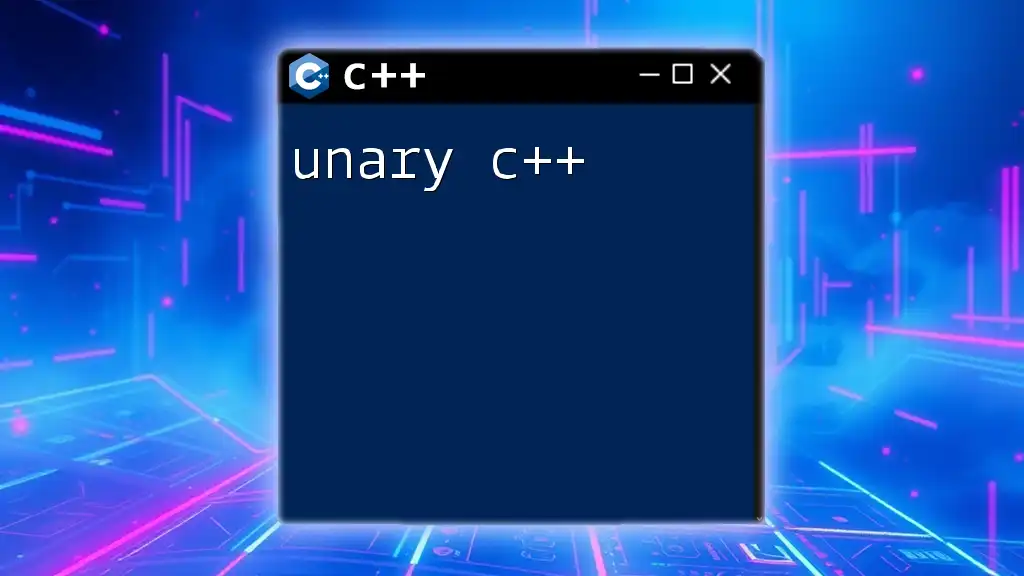
Exploring Udacity C++ Course Offerings
Overview of Beginner Courses
Udacity offers a range of beginner courses designed to familiarize newcomers with the syntax and basic principles of C++. The course structure typically spans fundamental concepts like:
- Variables and Data Types
- Control Structures (if statements, loops)
- Functions and Recursion
Hands-on projects are a crucial element of these courses, ensuring that learners not only absorb theory but also apply their knowledge practically. For example, you might create a simple calculator that can perform basic arithmetic operations.
Intermediate and Advanced Courses
Once you have a handle on the basics, Udacity’s intermediate and advanced courses delve deeper into more complex concepts, such as:
- Templates and Generic Programming: Reusable code that works with any data type.
- Standard Template Library (STL): Learning to utilize containers like vectors and maps to manage data efficiently.
- Concurrency: Understanding threads and parallel processing for creating responsive applications.
One notable project is creating a basic file manager that demonstrates how to handle files and directories programmatically. These projects not only solidify your understanding but also serve as practical portfolio pieces.
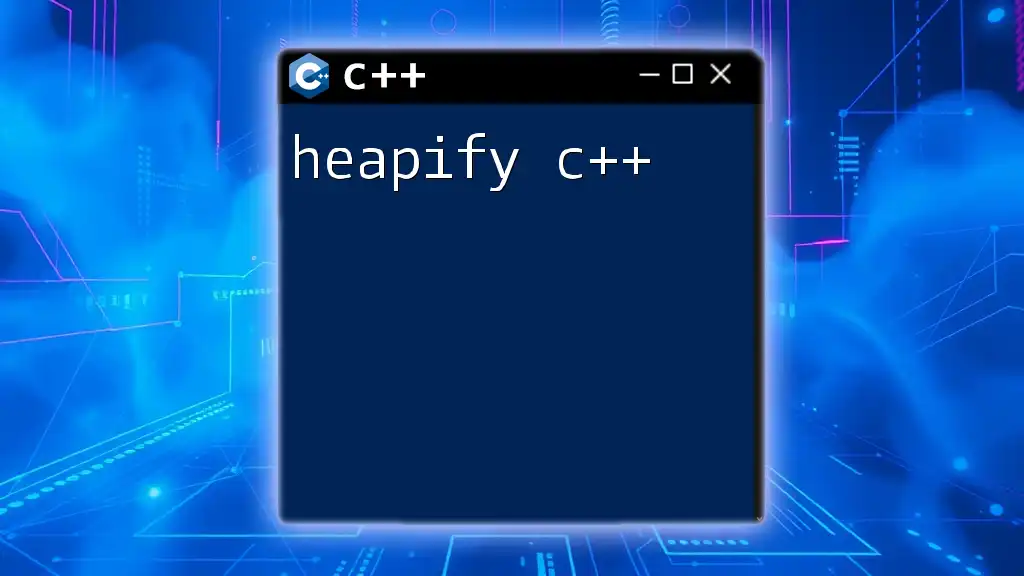
Learning Pathway and Tools
Suggested Learning Path
Starting with the introductory courses and gradually progressing to advanced modules is crucial for mastering C++. This structured approach allows students to build a solid foundation before tackling more challenging material.
It's also beneficial to create a balanced routine that incorporates both theory (reading and conceptual understanding) and practice (coding exercises, projects).
Resources and Tools Available
Udacity provides a wealth of resources, including coding challenges and quizzes to reinforce learning. Engaging with forums and mentor support is vital, as they enable students to clarify doubts and deepen their understanding.
Additionally, leveraging external resources, such as well-reviewed books (like "C++ Primer" by Lippman) and online tutorials, can further enhance your grasp of C++.
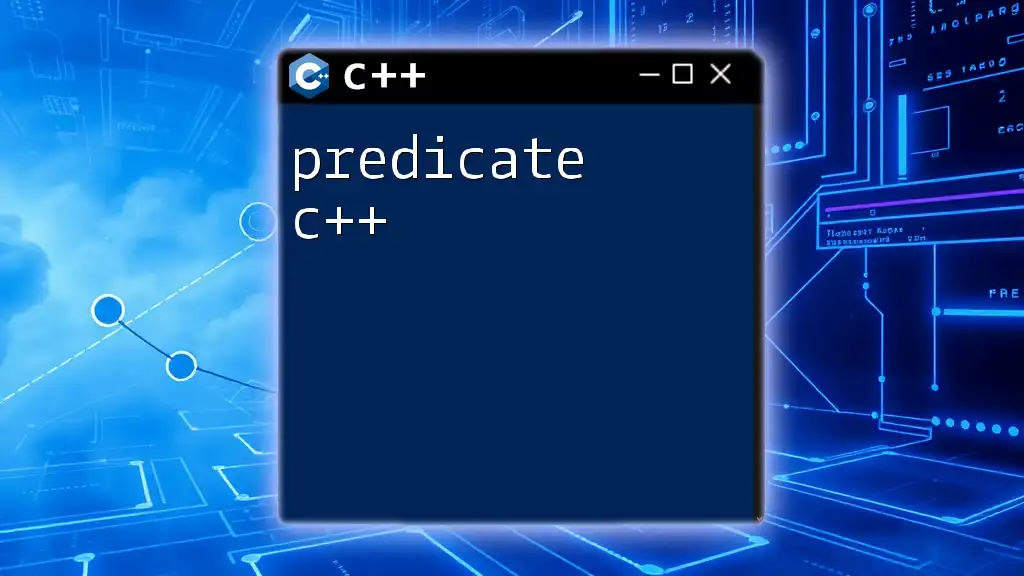
Practical Application of C++ Skills
Real-Life Projects from Udacity
Udacity empowers learners with a series of real-life projects designed to cultivate practical experience. Completing these projects not only solidifies your skills but also creates a portfolio demonstrating your expertise to potential employers.
Contributing to Open Source
Participating in open-source projects is an excellent way to apply your skills in real-world settings. Websites like GitHub host countless C++ projects that welcome contributions. Engaging with these communities allows you to collaborate with experienced developers, understand best practices, and make valuable connections.
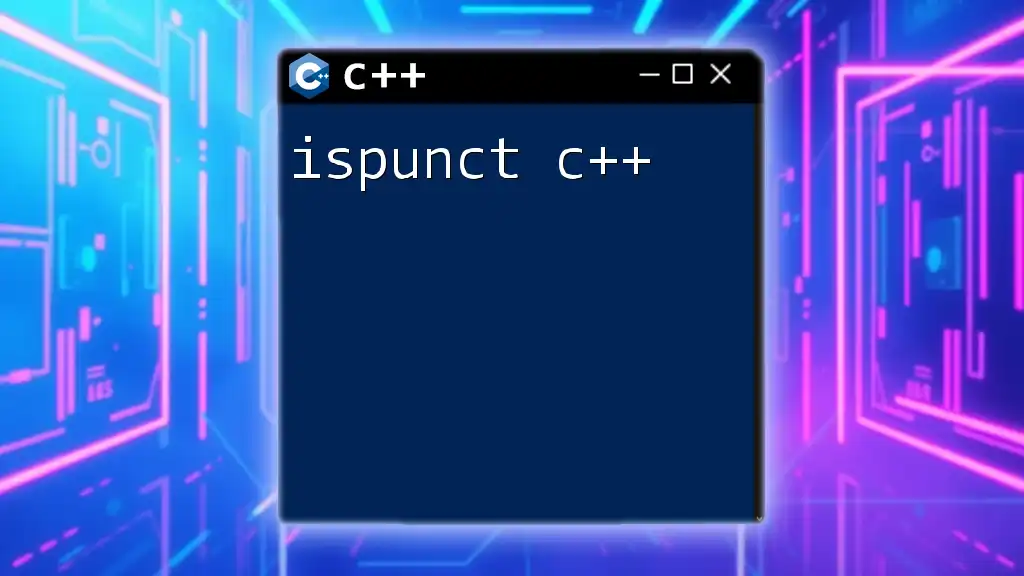
Community and Support on Udacity
Engaging with the Udacity Community
The Udacity community is vibrant and supportive. Seek study groups or partnerships, especially for collaborative projects. Utilize the Udacity Slack channel to connect with peers and mentors for feedback or guidance.
Feedback from Alumni
Many Udacity graduates credit their courses as pivotal for their career transitions. Success stories often illustrate how mastering C++ through Udacity has opened doors to roles in industries ranging from systems programming to game development, highlighting the demand for proficient C++ developers.
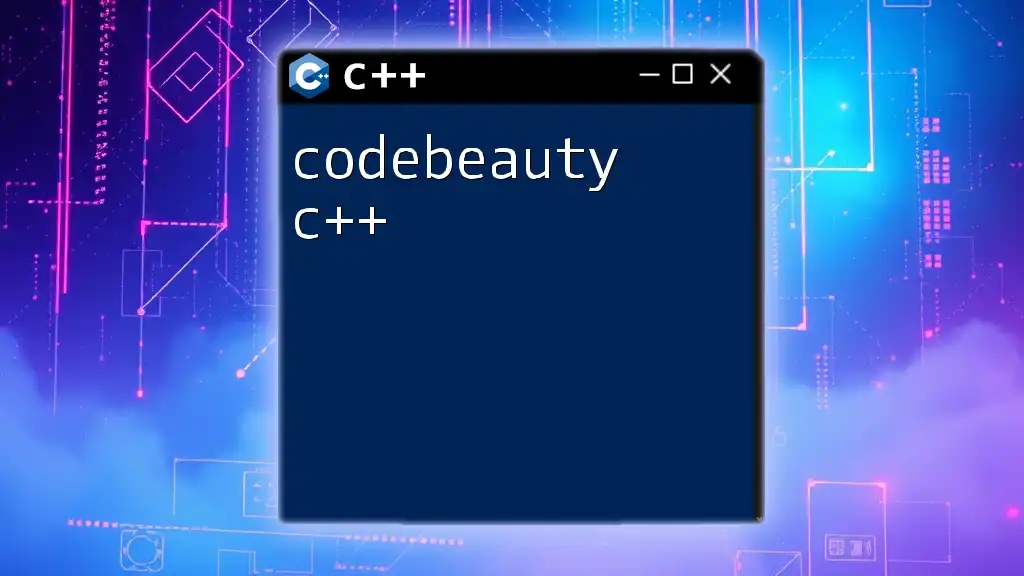
Conclusion
Mastering C++ through Udacity C++ courses is an invaluable investment in your programming career. With well-structured courses, engaging projects, and a supportive community, you will gain the knowledge and skills needed to excel in the tech industry. Whether you're aiming for a career in software development or looking to enhance your current skill set, now is the time to start your journey.
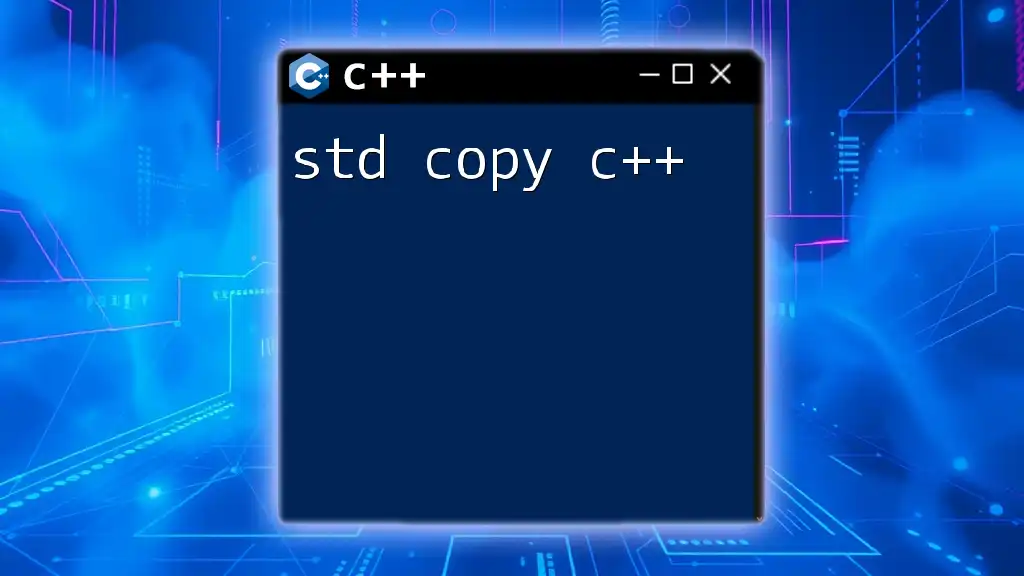
Call to Action
Visit Udacity's website to explore their C++ courses. Sign up for newsletters and keep an eye on updates for new resources and tutorials that can further your learning experience. The sooner you embark on this journey, the closer you will get to unlocking exciting career opportunities in tech.
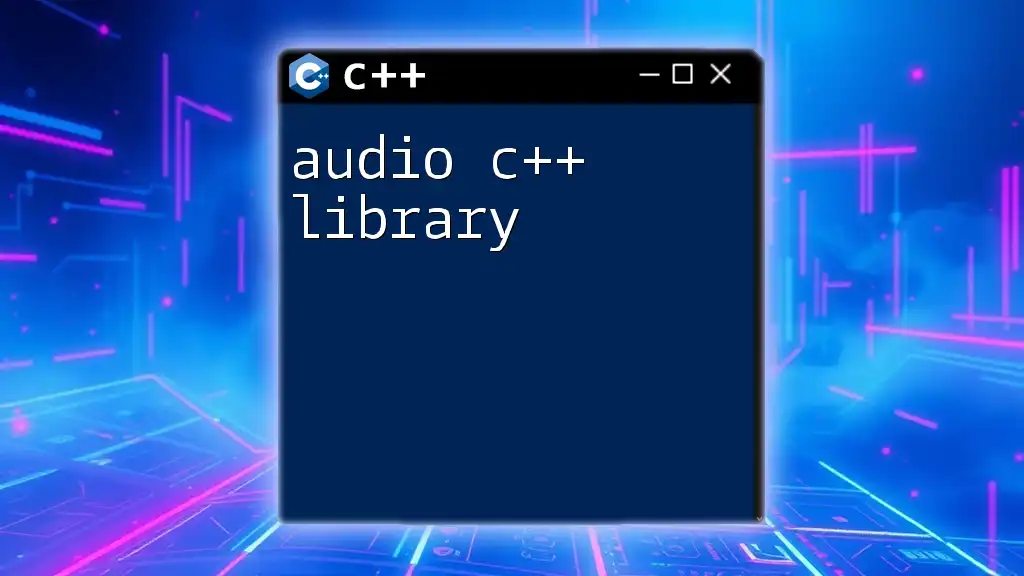
Additional Resources
Recommended Books and Materials
To supplement your learning, consider exploring recommended texts such as "Effective C++" by Scott Meyers and "The C++ Programming Language" by Bjarne Stroustrup, which provide in-depth insights and advanced concepts.
Online Tutorials and Webinars
Many platforms offer free C++ tutorials and webinars that can help reinforce your understanding. Websites like Codecademy and freeCodeCamp often feature C++ materials that align with Udacity’s curriculum.
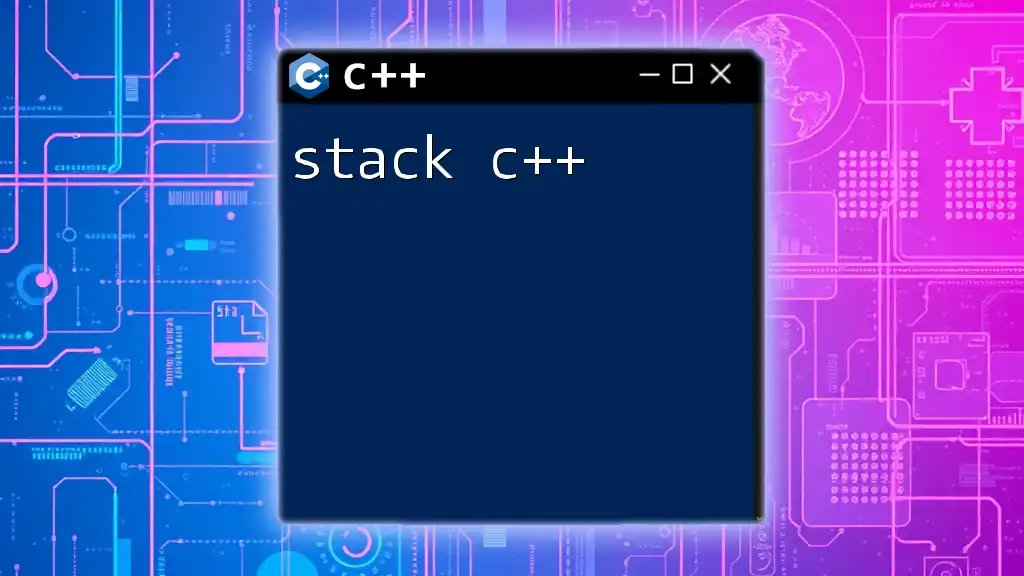
FAQs about Udacity C++
Common Questions
What are the prerequisites for Udacity's C++ courses? Typically, a basic understanding of programming concepts is helpful, but complete newcomers can start with the introductory courses.
Can I learn C++ without prior programming experience? Absolutely! Udacity's beginner courses are designed to guide you from the ground up.
Are there job placements or internship opportunities through Udacity? While Udacity doesn't directly place students, the skills and projects developed throughout the courses significantly enhance employability, making graduates attractive candidates in the job market.
By following this comprehensive guide, you are now equipped to dive into the world of C++ with sophistication and confidence. With commitment and the right resources, your journey into programming can be rewarding and fulfilling.

